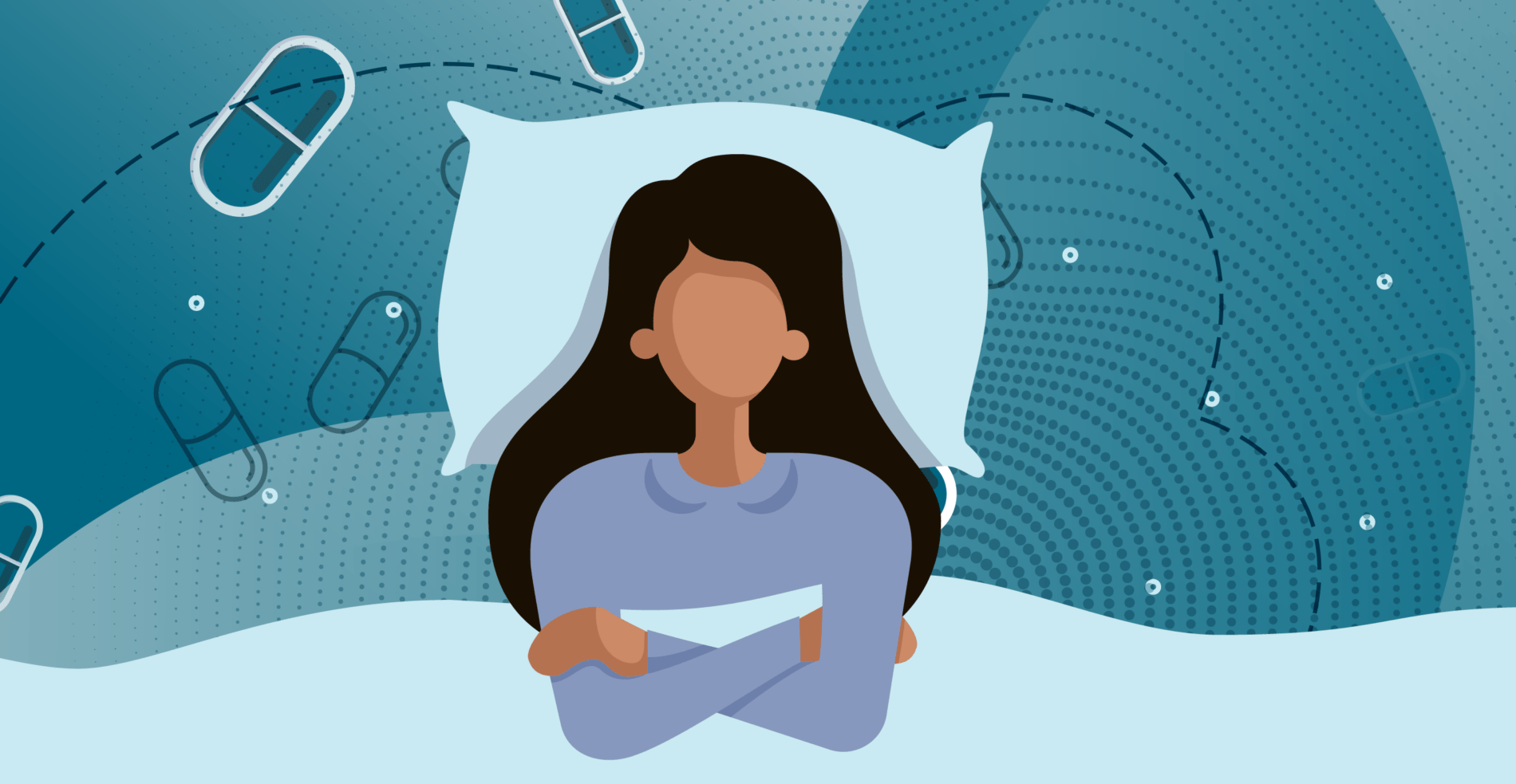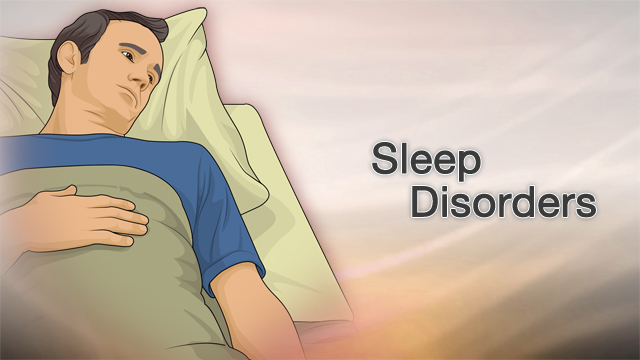Do you have trouble sleeping? If so, you’re not alone. Millions of people around the world suffer from sleeping problems. There are many different sleeping problems causes, and fortunately, there are also many solutions. In this blog post, we will discuss the causes and solutions to sleeping problems. We hope that this information will help you get a good night’s sleep!
Contents
What is Sleep Problem?

A sleeping problem is often termed Insomnia wherein a person finds it difficult to stay asleep. Sleep disorders are associated with both physical and emotional problems. They can worsen the health condition and can be a symptom of other mental health conditions.
Sleep problems (or sleep problems) are associated with poor sleep patterns, time, and number, leading to daytime stress and inactivity. Sleep disorders often occur with other medical or other mental health conditions, such as depression, anxiety, or depression.
Types Of Sleeping Problems

Some common types of sleeping problems include:
- Insomnia: This makes it difficult for you to fall asleep or sleep all night.
- Sleep Apnea: It is caused by an abnormal breathing pattern while you are sleeping. There are several types of sleep apnea.
- Chronic Radiation Syndrome (RLS): This is a type of sleep disorder. Restless leg pain, also known as Willis-Ekbom’s disease, produces negative emotions and a desire to move the legs while trying to sleep.
- Narcolepsy: It is a condition characterized by excessive daytime sleepiness and sudden drowsiness during the day.
Symptoms of Sleeping Problem
Following are some common symptoms of the sleeping disorder:
- drowsiness during the day and difficulty sleeping at night
- falling asleep at the wrong time
- shortness of breath
- uncomfortable movements or discomfort during sleep
- insomnia and sleep deprivation
- anger, depression, or anxiety
- decrease in long-term memory
Sleeping problems Causes
The reasons behind the sleeping disorders are different for different age groups.
In Adults

There are several factors that can contribute to insomnia. Aging is the major cause. Sleep patterns often change as you get older. Many old-aged people find it difficult to sleep. They get up often at night and early in the morning due to which adults feel like they sleep better than when they were younger. Excessive use of digital devices before going to bed (such as watching TV, or playing video games) is also hazardous. Exposure to light at night increases the chances of some sleep problems and affects consciousness the next day.
Next is the consumption of caffeine. It increases the feeling of wakefulness and so, foods and beverages, including soda, coffee, tea, and chocolate, affect your good sleep. Noise disturbances disturb also. They may wake you up from a deep sleep which prevents you from falling asleep again. Lack of happiness also comes on the list. The amount of sleep we get is closely related to our overall happiness. Lack of good sleep increases the risk of depression and anxiety.
While good sleep is vital for good health, excessive sleep during the day too comes up with many issues, including diabetes, heart disease, and an increased risk of death. Frequent urination is also an emerging root. People often wake up when they want to urinate at night which may interfere with sleep. It can result in wakefulness and lack of sleep at night. Some medications also give you trouble falling asleep. Certain medications, prescription drugs, and supplements are a few examples.
In adults, the above-mentioned points are some major sleeping problems causes. For many people, stress, anxiety, depression, or the work process can also interfere with sleep.
In Infants

Insomnia can also occur in children. Newborns often wake up several times a night. In kids, many issues related to sleeping are caused by temporary factors such as illness, tooth decay, or changes over time. If a child has symptoms of insomnia, it may be a sign that he or she has teeth, is sick, hungry, or has problems with gas or digestive system.
In other cases, sleep disorders in children are caused by environmental factors such as too much noise or light in the room. Having a noisy or bright bedroom can also be disruptive to sleep. This includes things like television noise or light from outside the window. If a child’s bedroom is not conducive to sleeping, it makes it more difficult for them to get the rest they need. Therefore, the atmosphere of the place also plays a major role in the good sleep of infants which has to be taken care of.
The sleeping habits of parents also affect the sleep of children. If parents go to bed late at night, it can disrupt the child’s sleep schedule. Another factor that can cause sleeping problems in children is when they are not comfortable with their bedding. This can include anything from the sheets being too scratchy to the pillow not providing enough support. If a child is not comfortable, they will have a harder time falling asleep and staying asleep.
What Happens When You Can’t Get Enough Sleep?

Sleep deprivation can have a negative impact on your overall health. It can weaken your immune system, increase your risk of heart disease, and lead to weight gain.
If you continue to work without adequate sleep, you may have serious and long-term health problems. Some of the most serious side effects of chronic sleep apnea are:
- high blood pressure
- diabetes
- heart attack or stroke
- obesity
- depression
- decreased immune system function
Sleep deprivation can affect your appearance also. In the due course, it can lead to early lines and dark circles under the eyes. There is also a link between insomnia and an increase in the stress hormone cortisol in your body. Cortisol can break down collagen, a protein that makes the skin smoother. In other words, lack of sleep can mean a lot of wrinkles.
Solutions To Sleeping Problems

There are many remedies available for sleeping problems. You can take the aid of any of these and practice regularly to bring the best into your lifestyle. Consistency is the key. Regularly practicing on your own in the right way will surely relieve you from the cause. Some solutions are explained below:
Change Your Lifestyle
Treatment for insomnia depends on the cause. Sometimes, simple lifestyle changes can improve sleep. You can avoid caffeine and alcohol for a few hours or more before going to bed. Avoid strenuous activities before going to bed and get seven to eight hours of sleep each night. Listening to relaxing music and a warm bath before going to bed also helps. Maintain a regular bedtime routine.
Do Meditation
Awareness meditation involves breathing slowly, and upright while calmly. You will also see your breath, your body, your thoughts, your feelings, and your emotions as you get up. There are many health and meditation benefits that go on with a healthy lifestyle that promotes good sleep. It is said to reduce anxiety, improve concentration and promote prevention.
Repeat Mantra
Frequent mantras or strong convictions can lead to and focus on the mind. Mantras are said to stimulate the feeling of rest by calming the mind. Choose the mantra that you find pleasing and calm. It should be a pretty simple statement. A good mantra will keep you focused on the repetition of sounds, allowing you to relax and fall asleep.
Practice of Yoga
Yoga seems to have an optimistic influence on sleep quality. Yoga reduces stress, improves physical function, and increases mental alertness. Body and yoga restoration is a good option. Doing the exercise before going to bed can help you relax and energize. At the same time, It’s important to do what works for you and your body, as this is different for everyone.
Therapy
You can take the aid of various therapies also to bring improvement in quality sleep. Therapies like Cognitive Behavioral Therapy for Insomnia (CBT-I) are often recommended as the first line of treatment for sleeping disorders.
The therapist will work according to your needs and try to recognize those areas where you need the help the most. In addition, the therapist will develop a sleep hygiene program to help improve your sleeping habits. Therapies can be done in offline or online mode, on a group or one-to-one personal basis. You can seek professional help for this.
You can contact Mantra Care to know more, they may provide therapy for sleeping problem issues. To consult, you can book a free session with the therapist today.
Exercise
Exercise promotes overall health. It improves your mood, gives you more energy, helps with weight loss, and promotes better sleep. You should exercise moderately for at least 20 minutes every day. You can apply some vigorous exercises a few times a week. Find the time of day that is best for your needs and has the best effect on your sleep.
Conclusion
In conclusion, we hope this article helped you in some way to know the sleeping problems causes and also showed you the way out of it through different practices and therapies. If you have sleeping problems, it is important to understand the causes so you can find the best solution. Sleeping problems can be caused by many factors, including physical or mental health issues, stress, anxiety, and certain medications. Choose the one that works best for you and stick to it. You will see a difference for sure.
For more information, please contact MantraCare. Sleep is an essential part of our daily routine and it plays a significant role in maintaining a healthy body and mind. If you have any queries regarding Online Insomnia Counseling experienced therapists at MantraCare can help: Book a trial therapy session


